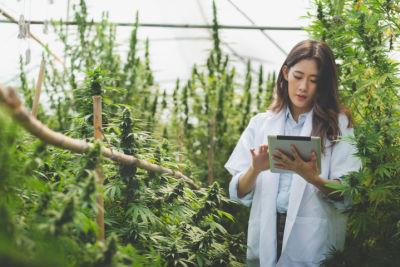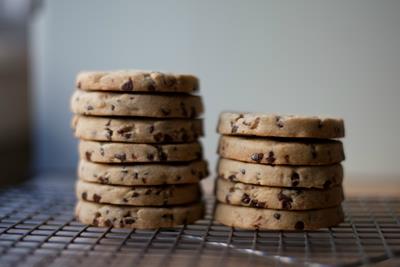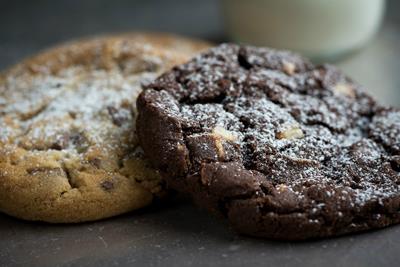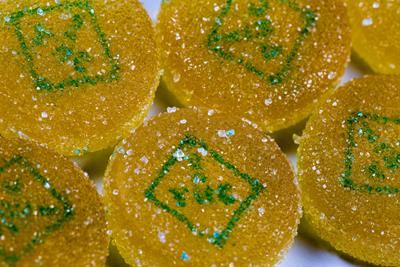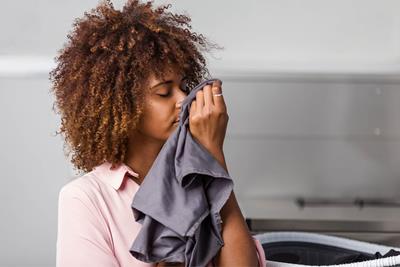
Wednesday October 2, 2019
By Erin Hiatt
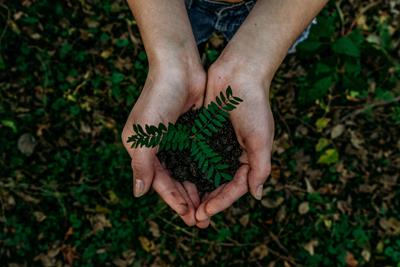 Education
Education
Despite cannabis’ earth-friendly visage and hippie vibe, the marijuana industry – in large part due to heavy single- use plastic packaging and deep demand for water and electricity – is not so green. There is no shortage of reporting on illegal cannabis grows on federal lands diverting water supplies and using toxic chemicals, while “doob” tubes and Mylar bags, in large part non-recyclable, are ending up in gutters and waterways. Until the cannabis industry comes up with a more environmentally friendly approach, it is up to consumers to be more thoughtful and conscientious. Here are a few ways you can be a greener consumer.
Recycle Cannabis Packaging
When it comes to recycling cannabis packaging, just like with anything plastic, not all of it can be recycled. Many dispensaries are now using recyclable plastic doob tubes, but before you toss it in the recycle bin, check the bottle for the recycle symbol, the very familiar chasing arrows enclosing a number.

If the number is 1, then it has a high recycle value (water bottles generally have this designation). The higher the number, the less likely it is to be recyclable plastic. And here’s a key piece of information: dirty plastics can’t be recycled! So if you don’t take that minute or two to clean the container, your plastic will end up in the trash anyway. For more info on how to be a conscientious plastic recycler, check out this great piece from National Geographic.
Recycle (Or Use Rechargeable) Vape Batteries
Lithium batteries are the operating force behind practically every handheld vape out there, and they are increasingly utilized, especially as demand for electric cars grows. However, lithium, a finite resource, does not just magically appear, it has to be mined. And even though lithium can be recycled, mining it still has an environmental impact.
When producing lithium from ore, for example, the ore is crushed, and then chemicals and high temperatures are used to separate lithium from other rock. And mining generally requires digging, land clearance, and significant expenditures of energy and chemicals. Many cities consider batteries of all kinds to be hazardous waste, so be sure to dispose of them properly. The easiest way to figure out how to unload your batteries is to refer to local resources, like your city or state website. Earth911 and Call2recycle are also fantastic resources to help you to find, among other things, local battery drop-off locations. Another thing you could do is to check with your local dispensary. Perhaps they have a partnership with an eco-friendly organization or will take the batteries back themselves.
Use Hemp Wick
Hemp wick may be one of the coolest and most ancient tools around. Being true to what its name implies, it is simply hemp twine dipped in beeswax. Dispensed in rolls or small skeins similar to yarn, hemp wicks are often wrapped around lighters, then used to light your joint or bowl.

Not only is it convenient (especially for consumers who may be arthritic and have difficulty using their hands) and practical, when you use hemp wick for your sesh, you only have to use your lighter once instead of multiple times. This way, you’re not inhaling butane fumes as you light up, and it significantly prolongs the life of your lighter, delaying its trip to the landfill.
Use Eco-Friendly Cleaning Products
To get the best quality out of your bud, keeping smoking accessories clean is a must. However, well-known cannabis cleaning hacks like acetone, isopropyl alcohol, and Epsom salts contain volatile organic compounds and other chemicals that may be hard on drain pipes and the water supply. There are a few products out there, like glass-cleaner Resolution that uses eco-safe ingredients, and PBW, an environmentally-friendly alternative cleaner for brewing equipment.
If you are more of a do-it-yourselfer, there are many household ingredients you could pick up for a few bucks, like hydrogen peroxide, lemons, baking soda, and vinegar that are known for their fantastic and all-natural cleaning power.
Just make sure the ingredient will be safe on a particular accessory before cleaning. Bonus: these household items can be used to clean practically anything, not just your cannabis stuff.
Don’t Use Pesticides on Your Home Grow
Pesticides are not awesome, and can cause both long and short term negative health effects, like nausea, dizziness, and diarrhea. Pesticides have been implicated in cancers of all kinds, and can damage the brain, nervous, and reproductive systems.
Not only are pesticides bad for people, they’re bad for the planet. They can harm non-target plants and are toxic to wildlife like birds, fish, and beneficial insects. Not to mention the risks pesticides pose to water, soil and other vegetation. Luckily, there are plenty of natural ways to reduce pests and weeds, and just like with the do-it-yourself cleaning products, natural pesticides like diatomaceous earth are more affordable.
Properly Dispose of Joint Roaches
Please, for the love of all things bright and beautiful, don’t just flick your joint onto the ground. Not only is it littering and an eyesore, but it can be dangerous, especially if you like to consume your cannabis in the great outdoors. One thoughtless toss of a semi-lit blunt or joint and up goes the neighborhood, especially if you live in a dry environment. If you are toking up in the wilderness, abide by the mantra, “pack it in, pack it out.”

Another smart choice you can make is to use eco-friendly rolling papers, like those made from hemp, palm, or rice. Some brands in the space to consider are head shop go-to Raw, High Hemp, Elements, and OCB. Not only are these better for the environment since they are not made from wood pulp, they have a longer burn and taste better than bleached white rolling papers.
Buy Greenhouse-Grown Weed
Cannabis grown in large, indoor facilities requires an enormous amount of energy and water. In Denver alone, between 2013 and 2016, energy used to grow cannabis accounted for nearly four percent of the entire city’s energy output.
Greenhouses are an excellent alternative. Ultimately, growers save money by taking advantage of light deprivation techniques instead of cranking up the electricity. And greenhouses are more eco-friendly than hydroponic grows, which use a ton of water. Though greenhouses may not necessarily be practical for home growers, even a small one can satisfy legal privacy requirements around growing.
Don’t forget, you have a lot of power as a consumer. One of the most important things you can do is to find and shop at dispensaries that adhere to environmentally friendly practices, and carry brands that value sustainability.
Do you have any tips for creating a greener cannabis industry? Share your thoughts and ideas in the comments below!
Photo Credit: Noah Buscher (license)



